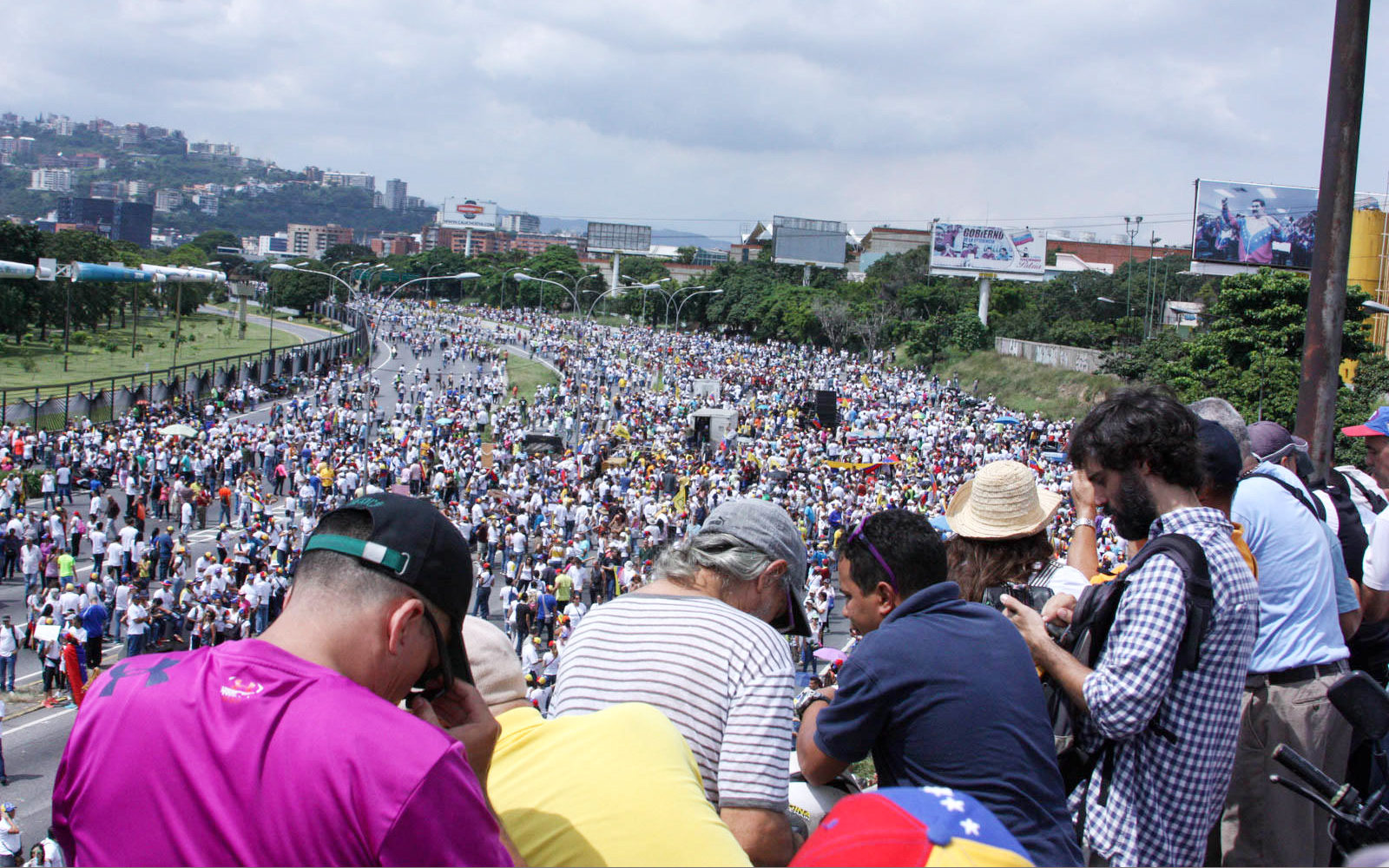
Venezuelan protesters march for democracy on October 26, 2016. Credit: Hugo Londoño
SHARE
On July 16, more than seven million Venezuelans participated in a generally peaceful referendum on President Maduro’s proposal to convene a Constituent Assembly with extraordinary powers to abolish existing institutions and write a new constitution. While the non-binding referendum was not recognized by the Venezuelan government or the country’s electoral authorities, it was an important effort by the opposition-controlled National Assembly to defend the country’s constitution -- put in place by former President Hugo Chavez -- and promote a democratic solution to the country’s burgeoning crisis.
The proposed Constituent Assembly would deal a crushing blow to Venezuelan democracy. Instead of following a one person, one vote system, a total of 540 people, mostly composed of government supporters, would have the power to dissolve the democratically elected National Assembly and install a parallel legislature. Given that Venezuelan experts also consider the Supreme Court to be packed with Maduro supporters, this would put the three branches of government firmly in Maduro’s control.
The referendum followed four months of daily street protests calling for the release of political prisoners and a restoration of democratic processes as the country’s severe economic and humanitarian crisis enters its fourth year. Venezuelan electoral authorities plan to hold elections for members of the Constituent Assembly on July 30, ignoring precedent and provisions of the constitution for consultations with the Venezuelan people on whether to convene such a body. The referendum, which aimed to give voters the opportunity to express their views, was organized by the Venezuelan opposition coalition Democratic Unity Table under the constitutional authority of the National Assembly.
The opposition set up polling stations with paper voting logs at 1,933 points across the country and in 80 countries abroad, and invited all citizens aged 18 and older to participate, verifying the eligibility of voters by national ID card. In the absence of official recognition, a coalition of five Venezuelan universities joined together to serve as guarantors of the referendum’s transparency and a small group of ex-presidents from countries around the region traveled to Venezuela to witness the process and serve as international guarantors.
National election observation groups, including the Venezuelan Electoral Observatory (Observatorio Electoral Venezolano, OEV) and Education Assembly’s Electoral Observation Network (Red de Observación Electoral de la Asamblea de Educación, AE), monitored the voting process throughout the country. Both groups belong to the Lima Accord (Acuerdo de Lima), a regional network of election monitoring bodies and are active members of the Global Network of Domestic Election Monitors (GNDEM), which include election observation groups from over 60 countries. NDI helped establish and has observer status in Acuerdo de Lima, and both Acuerdo de Lima and NDI actively participate in GNDEM.
The Democratic Unity Table reported that more than 7.5 million Venezuelans participated in the referendum and that over 99 percent of voters rejected the government’s formation of a constituent assembly and supported early presidential elections. Due to fears of government retaliation against voters, the referendum organizers destroyed voter logs immediately after the referendum to make identifying individual voters impossible. The international guarantors confirmed “massive” participation.
Such high participation is striking given that the government opposed the referendum, which was ignored by state-controlled media, and the number of polling places accessible to voters was only a third of those provided in officially-sanctioned elections. Although Sunday’s vote was largely peaceful, one person was killed and three were wounded when pro-government supporters opened fire on voters in the country's capital city, Caracas.
In response to Sunday’s clear expression of popular will, 11 governments throughout the hemisphere, including Argentina, Brazil, Canada, Mexico and United States, as well as the Organization of American States and the European Union, called on the Venezuelan government to respect the results of the referendum and suspend the July 30 Constituent Assembly election. For now, Maduro maintains that he will hold the election as planned. However, Venezuelans have made it clear that this is not the will of the people.


